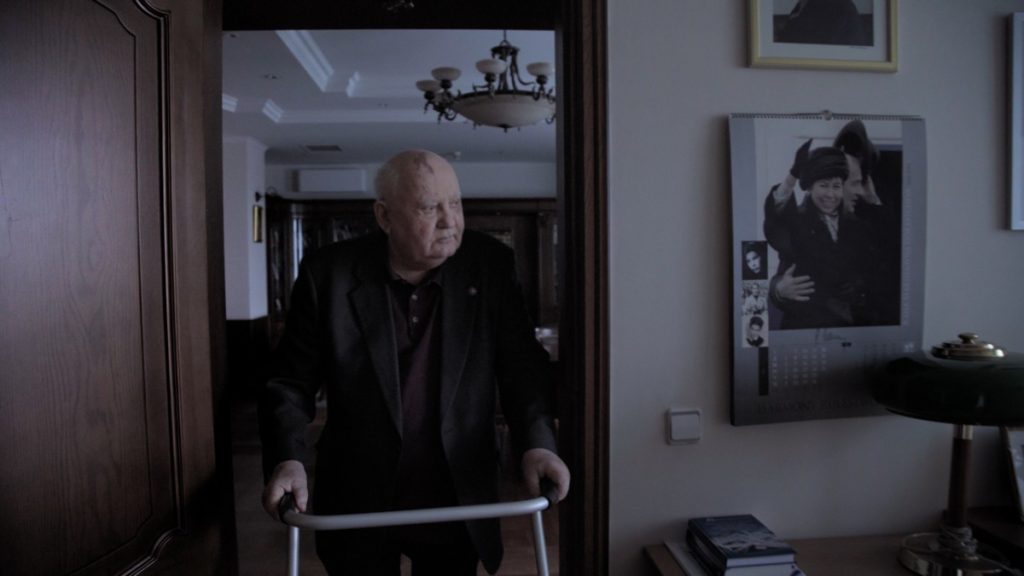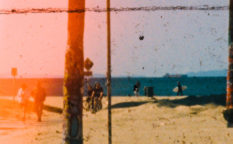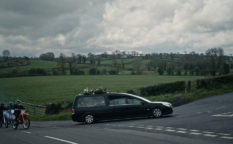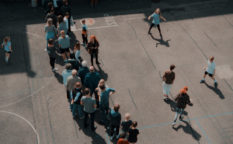Review: Gorbachev. Heaven (2020)
Crossing Europe Film festival
European Panorama Documentary 2021

Mikhail Gorbachev was one of the people most responsible for shaping our world. Even at the age of 89, regardless of his poor health and fading physical strength, he is still an intimidating figure and very tough nut to crack. Even the great Werner Herzog subordinated himself to the former (and the last) Soviet leader in the documentary Meeting Gorbachev (2018), which resulted in a pretty toothless political portrait of a film. Now, one of the most agile and significant documentarians of our time, Vitaliy Manskiy, has his go at the seemingly fading titan, and it seems that he had more success than his famous German predecessor. Gorbachev. Heaven premiered at last year’s IDFA, bringing Manskiy the Best Director award, and the festival tour ensued. We had the chance to see the film at Crossing Europe, happening physically in Linz.
At the very beginning, Manskiy had three significant advantages over Herzog regarding the portrait of Gorbachev. Firstly, they are both coming form a similarly mixed Russian-Ukrainian background and environment, which may have resulted in better understanding on the filmmaker’s part and more sympathy on the subject’s. Secondly, Manskiy was a first-hand witness of the Gorbachev rule and the events that shaped not only Soviet, but also the global history. Finally, back in the 90s, Manskiy was an employee of the Russian national television, tasked with following and filming the “first class” political figures, like Gorbachev, Yeltsin and Putin, which resulted either with the exclusive archival material (as shown in Manskiy’s 2018 title Putin’s Witnesses) or at least a large amount of time for preparations.
Actually, Manskiy’s approach in Gorbachev. Heaven is not to dissimilar from Herzog’s in Meeting Gorbachev. Manskiy meets the former Soviet president in his home outside Moscow, interviews him and goes through the moments of his career and the historical events of the late 80s and early 90s, from Glasnost and Perestroika to the collapse of the Soviet Union. The difference is that Manskiy is not afraid to confront his subject, demanding a precise answer to his question. The dementia ticket Gorbachev has played to success with Herzog does not work that well with Manskiy, since the filmmaker know exactly how lucid Gorbachev can be when he wants to. By taking the lead in the conversation and calibrating the use of his signature textual info-cards to provide the context for the younger and non-Soviet audiences, Manskiy could make a potent political documentary.
However, his ambitions are higher than that, which opens a whole another layer of the film. Manskiy wants and has the opportunity to show Gorbachev as a person, starting from his somewhat sad fate to be the liberator to whom the people and the peoples he liberated have turned their backs to, going through the personal tragedy of the death of his beloved wife Raisa, and culminating with his current health issues and the necessity to rely on personal assistance of his faithful employee Volodya. There are also the happy moments, coming to surface in Gorbachev’s clear and quite colourful memories to his childhood and youth, the beginning of the romance with Raisa and the songs, either the Ukrainian folk or the Russian romantic ones.
Manskiy started filming Gorbachev at his home, “given” to him in the form of a life-long rentless lease by the presidents of the former Soviet republics at the moment of the collapse of the communist empire, and the huge spaces and darkened rooms and hallways of the socialist villa create a certain melancholic mood, especially in the way the cinematographer Alexandra Ivanova shoots them in a toned-down, muted colours. But during the shooting, Gorbachev had to be transferred to the hospital, and after the release, Manskiy and Ivanova get the opportunity to show another “mausoleum” of his – his office at the Gorbachev Foundation, the institution that shares the similar fate as its founder. A crew from a Latvian theatre visits him there, wanting to turn his and Raisa’s life into a musical and asking for the details of their musical tastes and singing habits.
Finally, the action moves to Volodya’s home, where the assistant and his wife throw a modest New Year’s party for their once-powerful guest. It could have turned sentimental and sappy, but neither Manskiy nor Gorbachev let it happen. One of the keys for that might be the presence of the one whose name is never spoken on the TV screen in the corner. The wheel of the history keeps turning, the end of the history and the triumph of the liberal democracy might seem like an illusion now as the dictatorships arise all over the world, but once it was reality Gorbachev was the key part of. In his own words, he says that he tried, he does not even hide the bitterness for not being let to finish what he started, Manskiy questions him, but ultimately trusts him. We have no choice but to trust them both.
Original title: Gorbachev. Rai
Year: 2020
Runtime: 100’
Countries: Latvia, Czech Republic
Languages: Russian, Ukranian
Directed by: Vitaliy Manskiy
Written by: Vitaliy Manskiy, Alexander Gelman
Cinematography by: Alexandra Ivanova
Editing by: Yevgeniy Rybalko
Music by: Kārlis Auzāns
Sound design by: Anrijs Krenbergs
Sound by: Anrijs Krenbergs
Produced by: Natalia Manskaya, Vit Klusák, Filip Remunda
Production companies: Vertov Studio, Hypermarket Film
Supported by: ARTE, Czech Television, Current Time TV
Sales by: Deckert Distribution
















